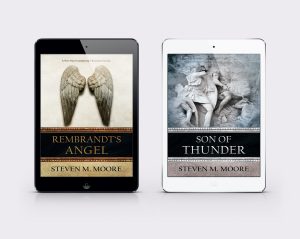Minimalist writing and Twitter…
I haven’t been on Twitter very long. (Frankly I resisted it because of Trump and other bigots, racists, and haters.) As a newbie, I’m still getting used to it. The number of my followers climbed steadily at first but now has tapered off. I can’t remember that number, though (it can’t compare with Trump’s), because I never much cared—I was surprised that it grew. I can remember to whom I tweet, mostly the #readingcommunity and #writingcommunity, but also to my genial authors’ group #WolfPackAurhors (they have two anthologies now, royalties going to a good cause). And I often retweet when I see something that I want my followers to know about. (My Twitter handle is scattered around this website with more important information for readers and writers.)
I sometimes even tweet to @realDonaldTrump (Twitter fills all these long names in for me), but I don’t view Twitter as an effective political tool. (If you use it for that, it’s like shouting on the Little Prince’s planet—only his rose might hear you.) In fact, my tweeting has also plateaued; I mostly use it just to announce the week’s blog posts now. (Maybe that’s why the number of my followers has plateaued?)
What Twitter is really good for is teaching authors to minimalist writing. Many have problems writing blurbs for their books, for example—maybe not marketing objects per se, but blurbs should be short, literate, logical, legal, and to the point. (You-know-who usually fails miserably in satisfying that literate, logical, and legal criteria…unless someone writes the tweet for him.)
Twitter teaches minimalist writing because it’s always better to get what you have to say said in one tweet. Even I often go over my tweets and have to edit them to complete my minimalist mission. So it teaches editing as well, albeit towards minimalist writing.
Of course, you can argue that not much information is contained in a tweet. (In the case of you-know-who, it’s often disinformation.) But tweets require economical prose, just like blurbs and longer text, and that goal is a good one for any writer. It’s more about maximizing the information in a minimal number of words. Lean writing is a plus; verbose writing turns everyone off. You can’t use big words either (Trump doesn’t know any); the leanness also implies using a vocabulary anyone can understand (even Trump—he responds to me now…or some staff member does).
Does Twitter help authors sell books? I doubt it. It’s social media, after all, a way to socialize, in my case, with readers and other authors. (Not my goal, of course, when I tweet at you-know-who.) Like Facebook, it was originally created to keep tabs on relatives and friends. Its use and abuse has gone far beyond that, but I still think that’s its most important use.
But readers won’t find novels on Twitter. And when you do find one to read suggested to you by a tweet, be assured it won’t look like a collection of tweets (unless it is a collection of tweets like a recent Washington Post book). Maybe a blurb about the book will grab you, but tweeting doesn’t even qualify as flash fiction (unless the tweet is a Trump lie).
Twitter generally isn’t good for much except for that socializing aspect, as is most social media—useless in the sense that the only thing it accomplishes is to permit people many time zones apart to chin wag, as the Brits would say. That sense might be a good thing in these days of pandemic, of course, where virtual conversations are the norm. Before the internet, people were isolated. With social media, we’re part of a worldwide community. (Unfortunately that Twitter community also includes @realDonaldTrump.)
***

Comments are always welcome.
Binge-reading #3. While I’m binge-reading other authors’ series, you’re welcome to binge on mine. In the “Esther Brookstone Art Detective” series, Esther, a Scotland Yard inspector in the Art and Antiques Division, obsesses with recovering a Rembrandt stolen by the Nazis in WWII (Rembrandt’s Angel) and with finding St. John the Divine’s before others do (Son of Thunder). Interpol agent Bastiann van Coevorden tries to keep her on an even keel. You might not consider this series binge-worthy—there are only two books so far (#3 is in the works)—but there’s a lot of fun reading here. Available on Amazon and at the publisher’s website, as well as on Smashwords and at its affiliated retailers (iBooks, B&N, Kobo, etc.) and library and lending services (Scribd, Overdrive, Baker & Taylor, Gardners, etc.). Enjoy!
Around the world and to the stars! In libris libertas!
